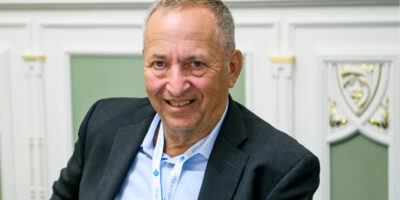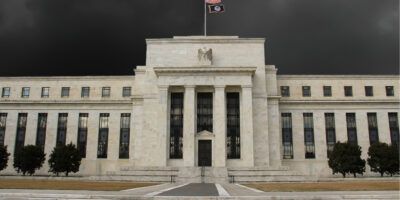The Sound Money Project was founded in January 2009 to conduct research and promote awareness about monetary stability and financial privacy. The project is comprised of leading academics and practitioners in money, banking, and macroeconomics. It offers regular commentary and in-depth analysis on monetary policy, alternative monetary systems, financial markets regulation, cryptocurrencies, and the history of monetary and macroeconomic thought. For the latest on sound money issues, subscribe to our working paper series and follow along on Twitter or Facebook.
Advisory Board: Steve H. Hanke, Jerry L. Jordan, Lawrence H. White
Director: William J. Luther
Senior Fellows: Nicolás Cachanosky, Gerald P. Dwyer, Joshua R. Hendrickson, Thomas L. Hogan, Gerald P. O’Driscoll, Jr., Alexander W. Salter
Fellows: J.P. Koning

“Let’s keep our eye on the supply side. We should be making every effort, policy-wise, to ease restrictions on production and exchange. That will help both in the short run and the long run.” ~ Alexander W. Salter
READ MORE
“Those denying any risk that inflation will remain above target or confidently predicting that 4 percent inflation will be the new normal, are not within the range of reasonable. They are rightly ridiculed.” ~ William J. Luther
READ MORE
“The post-2008 framework has incentivized the destabilization of monetary policy. The sooner we recognize this fact, the sooner we can seriously discuss a solution to the problem.” ~ James L. Caton
READ MORE
“A credible Fed would anchor expectations to its target growth path. Unfortunately, the Fed has not been credible in the past. That leaves us with a much more difficult question today: what should the Fed do when it hasn’t done what it should have done?” ~ William J. Luther
READ MORE
“Having persistently undershot its inflation target for nearly a decade, the Fed now looks poised to err in the opposite direction.” ~ William J. Luther
READ MORE
“The only way that the Banco Central do Brasil could completely end PIX-based lightning kidnapping would be to slow the entire system down. That would mean cutting regular Brazilians off completely from the benefits of real-time payments.” ~ J.P. Koning
READ MORE
“Problems with bitcoin’s design––including its suboptimal supply constraint and limited transactions capacity––cast doubt on the claim that bitcoin is superior to the monies widely used at present.” ~ William J. Luther
READ MORE
“There is clear evidence that bank deregulation can improve financial stability while also shrinking inequality. By lowering the costs of doing business, strong but simple regulations improve job opportunities for low-skilled and minority workers.” ~ Thomas L. Hogan & Amelia Janaskie
READ MORE
“Bitcoin’s supply mechanism fails to provide a long-run nominal anchor or promote monetary stability. A better money would employ a supply mechanism that offsets changes in the demand to hold it.” ~ William J. Luther
READ MORE
“It is unfortunate that OnlyFans content creators were nearly deplatformed. However, it seems to be a local incident, and not indicative of a global decline in accessibility to payments.” ~ J.P. Koning
READ MORE
“Government obstacles to widespread adoption take many forms, from mere transaction policy to outright bans on alternatives while providing close substitutes in the form of central bank digital currencies.” ~ William J. Luther
READ MORE
“There are steps entrepreneurs can take to help reduce the network effects problem. It is, nonetheless, an obstacle bitcoin must overcome to achieve widespread adoption.” ~ William J. Luther
READ MORE250 Division Street | PO Box 1000
Great Barrington, MA 01230-1000
Press and other media outlets contact
888-528-1216
press@aier.org
This work is licensed under a
Creative Commons Attribution 4.0 International License,
except where copyright is otherwise reserved.
© 2021 American Institute for Economic Research
Privacy Policy
AIER is a 501(c)(3) Nonprofit
registered in the US under EIN: 04-2121305